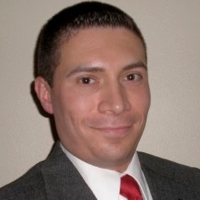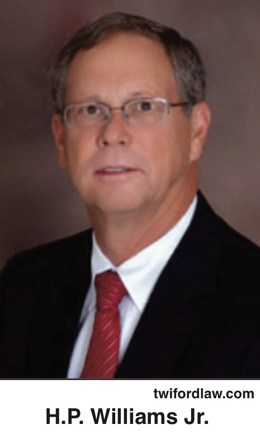Rascals case in brief
In the beginning, in 1989, more than 90 children at the Little Rascals Day Care Center in Edenton, North Carolina, accused a total of 20 adults with 429 instances of sexual abuse over a three-year period. It may have all begun with one parent’s complaint about punishment given her child.
Among the alleged perpetrators: the sheriff and mayor. But prosecutors would charge only Robin Byrum, Darlene Harris, Elizabeth “Betsy” Kelly, Robert “Bob” Kelly, Willard Scott Privott, Shelley Stone and Dawn Wilson – the Edenton 7.
Along with sodomy and beatings, allegations included a baby killed with a handgun, a child being hung upside down from a tree and being set on fire and countless other fantastic incidents involving spaceships, hot air balloons, pirate ships and trained sharks.
By the time prosecutors dropped the last charges in 1997, Little Rascals had become North Carolina’s longest and most costly criminal trial. Prosecutors kept defendants jailed in hopes at least one would turn against their supposed co-conspirators. Remarkably, none did. Another shameful record: Five defendants had to wait longer to face their accusers in court than anyone else in North Carolina history.
Between 1991 and 1997, Ofra Bikel produced three extraordinary episodes on the Little Rascals case for the PBS series “Frontline.” Although “Innocence Lost” did not deter prosecutors, it exposed their tactics and fostered nationwide skepticism and dismay.
With each passing year, the absurdity of the Little Rascals charges has become more obvious. But no admission of error has ever come from prosecutors, police, interviewers or parents. This site is devoted to the issues raised by this case.
On Facebook
Click for earlier Facebook posts archived on this site
Click to go to
Today’s random selection from the Little Rascals Day Care archives….
Click for earlier Facebook posts archived on this site
Click to go to
Today’s random selection from the Little Rascals Day Care archives….
Assistant attorney general complains: ‘Innocence is in vogue now’

linkedin.com
Jess Mekeel
Aug. 11, 2016
“[North Carolina] Assistant Attorney General Jess Mekeel said [Johnny] Small’s motion should be dismissed.
“ ‘Innocence is in vogue now,’ he told the judge, the Associated Press reported.
“Exonerations are certainly on the rise. Last year, about 150 people were exonerated, a record number, according to the National Registry of Exonerations….
“Mekeel [said] he considers reopening cases based on recanted testimony to be a threat to the American legal system.
“ ‘This is an attempt to retry a 28-year-old case. Twelve jurors made that determination already. They heard the evidence. They concluded the defendant was guilty,’ Mekeel said, according to WRAL. ‘They jeopardize the stability and reliability of our justice system.’ ”
– From “Man spent 28 years in prison after his friend accused him of murder. Now, the friend said he lied” by Travis M. Andrews in the Washington Post (Aug. 9)
“Innocence is in vogue now” – what a revealing glimpse of the inner prosecutor! As if exonerations were a fad, an unwarranted threat to “the stability and reliability of our justice system.”
Is it any wonder that district attorneys such as Jon David so eagerly pursue innocence advocates such as Chris Mumma?
![]()
Chapel Hill therapist was nothing if not certain
Nov. 2, 2011
Post on hidden mysteries.org (1995):
“Aside from the children and their parents, others are deeply disappointed by the N.C. Supreme Court’s decision not to (overturn) the reversals by the Court of Appeals.
“Superior Court Judge Marsh McLelland, who heard the Little Rascals case the first time, wrote in a letter to the Chief Justice of the Supreme Court: ‘Your refusal to review the Kelly and Wilson reversals by the Court of Appeals is legally and morally reprehensible.’
“Once more, the Edenton children find themselves as much on trial as their alleged perpetrators, if not more so.”
ANN EARLE
Letter to the editor of the News & Observer of Raleigh (May 16, 1996):
“As a psychotherapist who treats many child victims and adult survivors of sexual and ritual abuse… I am incredulous that so many people support Robert F. Kelly….
“There is ample historical and anthropological evidence that ritual abuse has existed for centuries…. Unfortunately, day care centers are optimal settings for such perpetrators.
“If there is indeed a ‘witch hunt’ going on, it’s actually aimed at abused children and those who advocate for them.”
ANN EARLE, C.C.S.W., B.C.D.
Chapel Hill
Letter to the editor of the News & Observer of Raleigh (June 4, 1997):
“Investigators should not ask leading questions, of course, but even if they did it is difficult to imagine how a young child could come up with graphic details of sexual activity if nothing happened. Child sexual abusers and pornographers routinely incorporate fantasy to entice children to cooperate and render them less believable if the child ever tells.
“Why are journalists so quick to believe alleged abusers and discount sexual abuse allegations by children?”
ANN S. EARLE
Chapel Hill
Letter to the editor of the News & Observer of Raleigh (January 15, 1999):
“In reality, false allegations of sexual abuse by preschool children are rare.
“I have spent three years researching and editing a book on ritual abuse allegations. Ample evidence supports the existence of such abuse in day care centers, in spite of how bizarre it may sound.
“Robert Kelly was found guilty by a jury of his peers in a lengthy trial. This verdict was overturned only on a technicality.
“Finally, there is obviously significant evidence to charge Kelly in a case unrelated to Little Rascals (charges dropped eight months later). We should consider these facts before concluding that the alleged abuses at Little Rascals were due to a ‘hysteria’ fueled by a ‘rumor mill.’ ”
ANN EARLE, C.C.S.W., B.C.D.
Chapel Hill
As these comments suggest, certainty in the pervasiveness of ritual abuse extended well beyond those therapists directly involved in the Little Rascals case.
Did Ann Earle, a board member of the International Council on Cultism and Ritual Trauma, ever change her mind? If so, she seems not to have shared the news.
Courts reluctantly turn to Little Rascals DA
 May 27, 2014
May 27, 2014
“The state court system says it hired a local defense attorney to prosecute three murder suspects because the current district attorney had conflicts of interest in all three cases and no other prosecutors were available.
“The N.C. Administrative Office of the Courts hired H. P. Williams Jr. as a special prosecutor on March 27 after attempts to find a prosecutor from either the state Attorney General’s Office or another district attorney’s office failed….”
– From “Williams to prosecute 2 more murder cases” by William F. West in The (paywalled) Daily Advance (May 24)
Yes, that’s the same H.P. Williams Jr. who as district attorney prosecuted the Edenton Seven, who as an ostensible expert appeared at conferences on “satanic ritual abuse” alongside “cult cop” Robert J. Simandl and Civia Tamarkin of Believe the Children, who as a candidate for reelection received only 41 percent of the vote and who after returning to private practice emphatically declined to discuss the Little Rascals case.
Yes, that H.P. Williams Jr….
Edenton Seven won’t be snapping selfies at marker ceremony
Dec. 31, 2014
“Dear Mr. Powell:
“At their meeting on December 16, the members of the North Carolina Highway Historical Marker Advisory Committee… voted unanimously not to approve a marker (in Edenton recognizing the Little Rascals Day Care case).
“Your nomination was among 17 on the agenda (only five met with approval)…. In short, the committee felt that the case was too recent – with too many people affected by it living in the area. They felt that much more time needed to pass before the subject could be judged by history and considered for a marker. One suggestion was that it might be considered 25 years after the deaths of those convicted…..”
– From a letter rejecting my application for a “history on a stick” marker for the Little Rascals case
I respect the committee’s reasoning, even though I doubt I’ll be around when it’s ready to reconsider – in what, 2075?











0 CommentsComment on Facebook